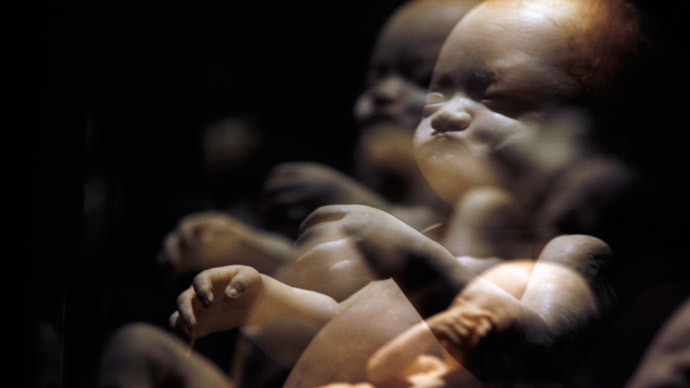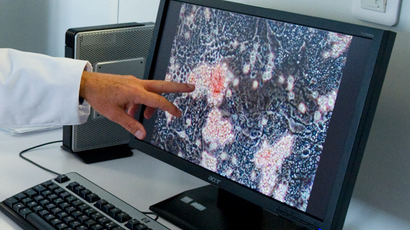UK science panel backs three-parent IVF babies

A new review by British scientists has given the green light to creating babies from three people. They said the techniques used were not unsafe.
The Human Fertilization and Embryology Authority (HFEA) said Tuesday that after examining a large amount of data, it has concluded that nothing suggests at the moment that the techniques used were “unsafe” and added it could be “potentially useful for a specific and defined group of patients.”
But it added that further experiments were needed. The announcement follows two reviews in 2011 and 2013, which reached similar conclusions.
The techniques used in three parent IVF babies are highly controversial as they involve creating babies from three people - two mothers and one father, which critics say could lead to the phenomenon of “designer children.”
The procedure involves donor DNA being given by a second mother, which is implanted into the defective egg of the first mother and can prevent children suffering debilitating genetic conditions such as muscular dystrophy, blindness and brain disorders.
The method is called mitochondrial replacement or transfer and is still at the research stage in laboratories in the United States and Britain.
Mitochondria are what produce the energy in every human cell and about 1 in 6,000 babies are born with severe mitochondrial disorders. Women with defective mitochondria also repeatedly miscarry.
For now the science is illegal to be used on people in both the UK and US, but last year the British government said it was drawing up legislation that would allow treatment to go ahead if clinical trials prove successful.
While in the US the Food and Drug Administration (FDA) has also set up a committee of experts to see if safety concerns are minimal enough to allow human trials to begin.

As part of the British consultation, scientists from the HFEA examined two different mitochondrial replacement techniques, Maternal Spindle Transfer (MST) and Pronuclear transfer (PNT).
“There has been a lot of new data that we looked at and we worked very hard to address all the issues. First of all there is still no evidence to suggest that either technique might be unsafe. There is still insufficient evidence to recommend one technique over the other… but we still do recommend that some further experiments are needed to be done before introducing either into clinical practice,” said Professor Robin Lovell-Badge one of the authors of the report.
If the UK government does bring in rules allowing the practice, then it will be up to the HFEA to decide if treatment can go ahead on a case-by-case basis.
“Mitochondrial donation will give women who carry severe mitochondrial disease the opportunity to have children without passing on devastating genetic disorders. We will give careful consideration to this report and announce our plans in the next few months,” said a spokesman for the Department of Health.
Peter Broad, one of the members of the panel, which examined the evidence, and a professor of obstetrics and gynecology at Kings College London cautioned that while there is some risk, the benefits of three-parent IVF were huge.
“The implementation of any new medical treatment is never wholly without risk, and genetic alteration of disease is an important step for society that should not be taken lightly,” he told Reuters.
The UK government has indicated that as long as they are strictly regulated, the treatments should be allowed to go ahead, while a recent poll showed Britons were largely in favor of the idea.














